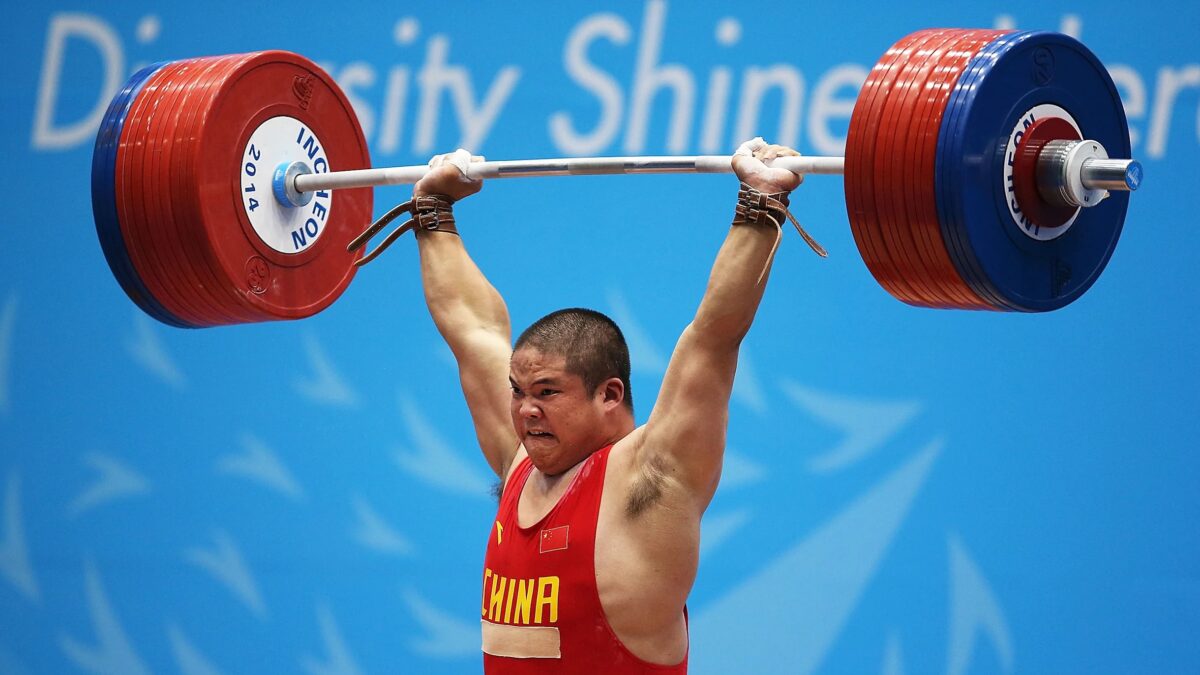It’s the news that every gym bro, brickie and loader has been waiting for: a new scientific study has found that not only does lifting heavy stuff give you bulging biceps and a tough-guy aura, but it also gives those all-important swimmers a welcome turbocharge…
It’s always a good day for men’s journalism when some sperm-centric news comes dribbling down the pipeline, with recent highlights including pronouncements that you can boost your sperm count by doing absolutely nothing or, even more excitingly, by going commando.
This week, a study from the Harvard-affiliated Brigham and Women’s Hospital has found that your quintessentially manly pursuits may be doing more than just pumping up your biceps.
It turns out that regularly lifting heavy objects at work or elsewhere could give your sperm count a serious kick, strengthening your swimmers to previously unrecognised levels…
The study, published in Human Reproduction, looked at 377 men who were in long-term couples and already seeking treatment at a male fertility centre.
Researchers found that of those men, the blokes who reported frequently hoisting heavy loads had sperm concentrations that were 46% higher than those who did not. They also boasted a total sperm count that was 44% higher than those with less physical jobs or outlets.

That’s not all… Men who reported more physical activity also had higher levels of testosterone, the male sex hormone. This might sound intuitive, given the boosted sperm count. What you might find more surprising is that those men also had more of the female hormone estrogen.
Yes, you read that right: lifting heavy things doesn’t just make you more masculine in manifold ways, it can also get you more in touch with your feminine side as well…
Lidia Mínguez-Alarcón, a reproductive epidemiologist in Brigham’s Channing Division of Network Medicine, explains: “we hypothesise that excess testosterone is being converted into oestrogen, which is a known way for the body to keep normal levels of both hormones”.
Now, before you ditch your desk job and start pumping iron for a living, it’s worth keeping in mind that infertility is a serious issue affecting many couples. Male factors account for about 40% of infertility cases worldwide, so it’s important to take care of your swimmers if you’re trying to start a family.

Mínguez-Alarcón also explained the potential benefits of this study on men’s medicine at large: “There is increasing evidence that male infertility is associated with common chronic diseases such as cardiovascular disease and autoimmune disease”, before adding that:
“Uncovering actionable steps people can take to improve their fertility stands to benefit all of us, not just couples trying to conceive.”
Lidia Mínguez-Alarcón
So, if you’re already in a physical job, keep on lifting those weights and moving those heavy boxes and, if you’re thinking of trying for an ankle-biter soon, maybe it’s time to head down to the gym.
Plus, if it’s giving you a cheeky little oestrogen boost too, it might help you get in touch with your missus in more ways than one. Just a thought.
